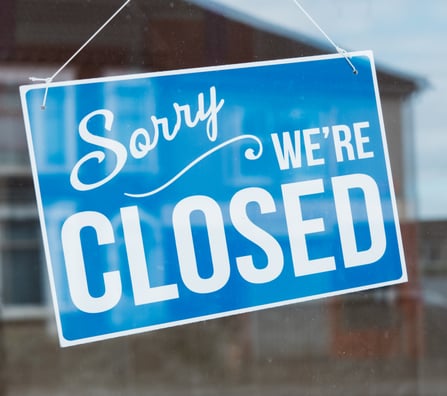3 reasons why in-house dental billing is a high cost to your practice


It’s a common belief among dental practice teams that in-house dental billing is better than outsourcing. Why is this? They think they will have more control and save money by hiring someone in-house to handle their dental billing. So they don’t consider outsourcing, or they bring it back to their in-house team after having outsourced it to a billing company.
You want to make sure you’re choosing the most cost-effective option for your dental insurance billing. Is giving the responsibility to someone at the office always the best option?
Because our goal at Dental ClaimSupport is to make independent dental practices more profitable, we watch billing process revenue very closely. We analyze not only the cost of in-house insurance billing vs outsourcing, but also what kind of systems deliver higher revenue numbers for your office in the long run.
As a dental billing company, we have found that when we work as partners, your insurance claims become faster, more accurate, more consistent, and compliant. This means your collection rate and the amount collected are higher because you have a team of experts whose entire job is to get your dental insurance claims paid.
In this article, you will learn 3 reasons the in-house insurance billing model is costing your practice. We will compare the cost of outsourcing vs hiring an in-house insurance coordinator. We’ll also explain how hiring someone inexperienced in billing works against the goal of saving money and lowering overhead costs for your practice in the long run.
1. Hiring an insurance coordinator is more expensive than hiring an outsourced dental billing company
You may think that signing on with a dental billing company is going to cost your practice tens of thousands of dollars per month. While the entry-level cost of outsourcing may be close to a thousand dollars per month, it’s far less than the cost of the salary to hire a dedicated dental biller.
One of the biggest myths about dental billing is that it’s more expensive than hiring an in-house insurance coordinator.

A qualified, experienced insurance coordinator’s salary is $50,000 annually. The short answer: If you’re paying more than $18,000 per year for accurate insurance billing services, you’re paying more than you should.
Insurance coordinator salary vs service fee at a dental billing company
According to a 2020 Ziprecruiter article, a dental office insurance coordinator (in-house) salary average is $18.26 per hour. An insurance coordinator earning $18.26 per hour will cost you between $47,476 and $53,173 per year in salary and benefits.
Compare that to working with an outsourced dental billing company. In most cases, the pricing structure largely depends on the amount collected from insurance monthly. For example, if your practice should collect up to $40,000 per month, you might only pay as little as $1,300 per month for dental billing services.
$1,300 x 12 months = $15,600 annual fee for a dental billing company.
So you pocket about $34,400 in overhead savings – that's the difference between the $50,000 annual salary vs the $15,600 total annual service fee to work with a dental billing company (based on our pricing). That’s a big margin!
But let’s say you want to hire someone you can pay on the low end of this salary, maybe someone right out of school or a family member who just wants a job.
2. The cost of on-the-job learning is higher than tapping into a network of experts
If it’s too expensive to hire an experienced insurance coordinator at $50,000, one strategy is to hire someone with less experience who you can train on the job. Everyone can learn with the proper training, right?
In a lot of cases, yes. Most people can (and do!) learn the ins and outs of their job while doing it. However, this is a costly approach to handling insurance billing. The process is far more technical and complex. Learning coding and compliance requires formal training, and a lot of guidance at first if you have little to no experience.
.jpg?width=534&name=DSC05783%20(1).jpg)
Who is going to sit with your new hire and walk them through every step of the insurance billing process? While this new hire is learning, who will be responsible for your insurance billing?
Inexperience with insurance billing is going to cost your practice time, money, and invite other problems
When someone early in their career starts their job, it’s common for mistakes to be made. This is how people learn.
What’s unique about insurance billing is that these mistakes will cost your dental practice thousands in revenue each month. Non-compliance with regulations also increases your risk of fraud - even if no fraud was intended. The person you’ve hired will likely not understand the following:
- How to post insurance payments in the preferred dental software
- How to handle a partially paid claim
- How to handle outstanding claims
- How to use and work with a clearinghouse
- How to choose the proper CDT code and know it’s documented correctly
- How to strategically win claim appeals
Inexperience with the complicated nature of insurance billing will cause mistakes on claims, which will result in denied claims and delayed payment from insurance companies. As we all know, the longer payment is delayed from insurance, the less like it is to ever be paid.
Learn 10 reasons your claims could be denied by insurance companies in our Learning Center.
So, while it is kind to give someone just starting out their first real job, or take on a family member looking for work, you’re doing your practice a disservice. Every day, insurance companies seem to discover new ways to deny claims.
That’s why insurance billing is a process that benefits tremendously when a network of experts keeps each other up-to-date at a moment’s notice.
For instance, only an experienced dental biller knows that many carriers will deny certain procedures, such as periodontal scaling and root planing (SRP) more often than other procedures.
If your biller has already sent x-rays, intraoral photos, and perio charts for additional information, it’s very difficult, if not impossible for this person to see how to overturn these denials.
But when you have experts who constantly share their notes and expertise, you tap into a knowledge pool with the latest information to get denials overturned and paid. Your outsourced experts do this by sharing templates and updates when carriers change the rules.
They already know how to handle commonly denied procedures. They will even let your office know what to include in future claims so you get paid faster. That’s how you benefit by outsourcing with experts who leverage their years of experience while sparing you the cost to raise their learning curve.
3. The cost of disruptions to your billing system is higher for in-house teams
There are a few things that take place in the actual office that could disrupt your billing system or prevent the person responsible from working on your insurance billing. The power could go out, the person handling billing could get sick, they could take some vacation days, or you may close your office for a planned or unplanned break.
There is a myriad of reasons why insurance billing could stop.
Few dental practices have multiple experts to handle insurance billing who can take over when the main biller is unavailable. When claims aren’t being regularly sent, followed up on, and appealed if denied, this can cost your practice money.

A lot of dentists like to close for a few weeks during the winter holidays. Who is working the insurance aging report during this time? Revenue typically goes down when in-house teams take vacation time in November and December.
But remote team members don’t have to follow your in-house schedule. Many want to work through the holidays even while offices are closed, to keep collection rates up.
It’s the same thing - insurance claims don’t stop needing to be paid whether there’s a retirement party or a pandemic. That’s why good dental billing companies typically always have an expert biller available to be working on your office’s claims.
Wait, don’t outsourced dental billers get sick and take holidays too?
Of course! They’re human too! However, most companies have operations managers and a system to respond as needed. If one remote biller is out sick or is taking some time off, another remote biller will take over their responsibilities. And guess what: both of these people are insurance billing experts.
There’s no need to fear, cross your fingers, or think, “I hope they know what they’re doing” when you hand over your billing to this person while your regular biller is out.
Is your practice more profitable when using in-house or outsourced billing services?
If lower costs and higher revenue are driving the decisions you make for your practice, you should consider all of your options, analyzing the cost-effectiveness of each.
While it’s appealing to see yourself surrounded by a loyal in-house team, it is actually more expensive to hire an insurance coordinator than to work with a dental billing company.
And even if you do hire someone inexperienced that you can pay less, their lack of experience is still going to cost your dental practice in unpaid insurance claims and increased compliance risks.
For many independent dentists, insurance collections account for at least half of your entire revenue, often even more. For this reason, it is essential that the person handling knows exactly what they’re doing to get your claims paid by insurance.
Dental ClaimSupport offers you this expertise over everything, which is why our expert dental billers are always experienced, professionally trained, and supervised whenever working with a dental office.
To learn more about how outsourcing your insurance billing can be a solid choice for your practice, read our article, “Why outsourcing your dental billing doesn't mean you failed.” You will learn how choosing to outsource your billing is a great strategy for collecting more money for your practice.
Related Posts
Dental revenue resources from Dental Claim Support

